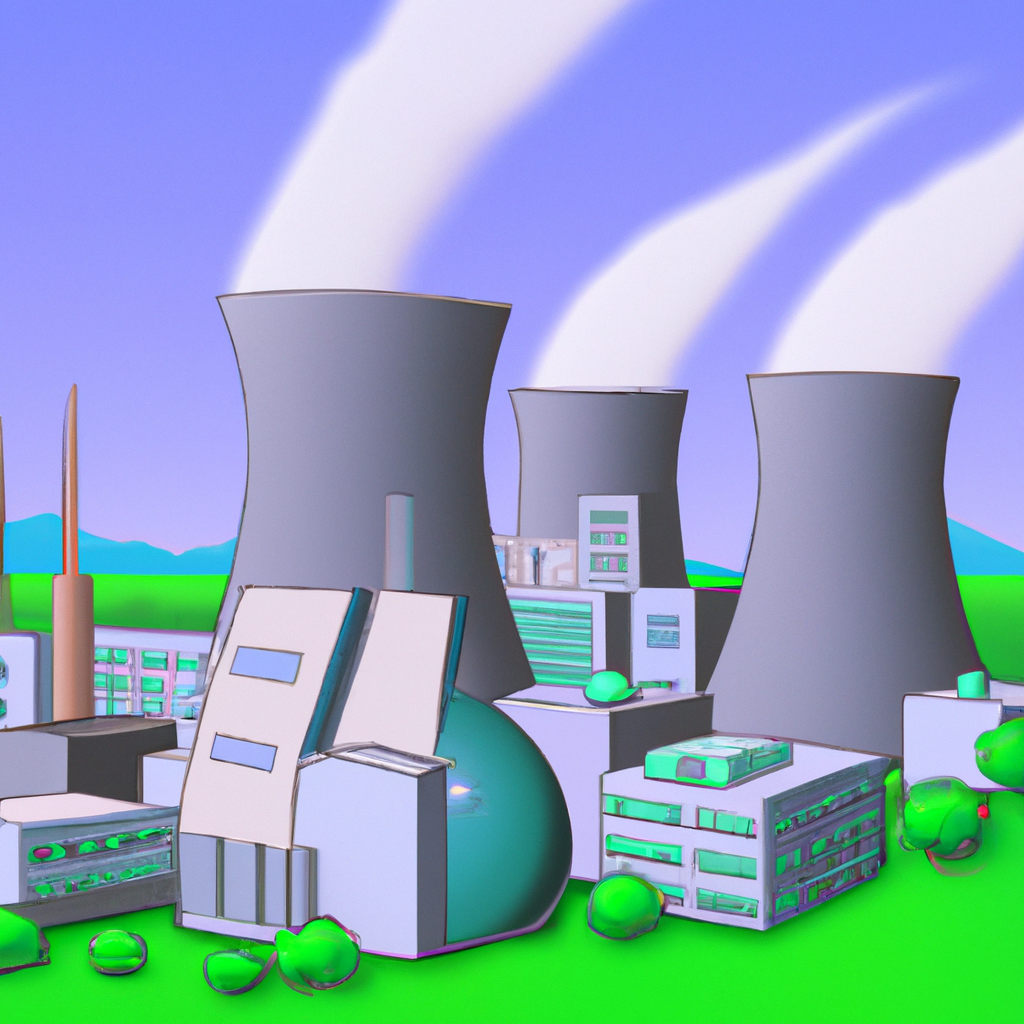Nuclear energy has been one of the most controversial topics in the world of energy production. The debate about nuclear energy has been going on for decades, with some arguing that it is unsafe and should be phased out, while others claim that it is a clean and reliable source of energy that is necessary for meeting the world’s growing energy demands. In this article, we will explore the future of nuclear energy and why it is still a viable option for power generation.

The Safety of Nuclear Energy
One of the most significant concerns regarding nuclear energy is its safety. Many people believe that nuclear power plants are dangerous and prone to accidents that can have devastating consequences. While there have been some high-profile accidents, such as the Chernobyl disaster in 1986 and the Fukushima disaster in 2011, it is important to note that these accidents were the result of specific circumstances and not inherent flaws in nuclear energy.
In recent years, nuclear power plants have become much safer and more reliable. New technologies and safety measures have been implemented to prevent accidents and mitigate their effects. Additionally, regulations and oversight have been strengthened to ensure that nuclear power plants meet the highest safety standards. As a result, the likelihood of a catastrophic accident is extremely low.
The Environmental Benefits of Nuclear Energy
Another significant advantage of nuclear energy is its environmental benefits. Unlike fossil fuels, nuclear energy does not produce greenhouse gas emissions, which contribute to climate change. Nuclear power plants also produce significantly less waste than fossil fuel power plants, and the waste that is produced can be safely stored and managed.
Furthermore, nuclear energy is a reliable source of energy that can help reduce dependence on fossil fuels. As the world continues to transition to cleaner energy sources, nuclear energy can play a critical role in meeting the world’s energy demands while reducing greenhouse gas emissions.
The Economic Viability of Nuclear Energy
The cost of nuclear energy has been a significant barrier to its widespread adoption. Nuclear power plants are expensive to build, and the cost of maintaining and operating them is also high. However, recent advancements in technology have made nuclear energy more economically viable.
New reactor designs, such as small modular reactors, are being developed that are more efficient and cost-effective than traditional nuclear power plants. Additionally, nuclear energy can provide a stable source of energy that is not subject to the same price volatility as fossil fuels.
The Role of Nuclear Energy in the Future of Energy Production
Despite the concerns and controversies surrounding nuclear energy, it still has a critical role to play in the future of energy production. As the world continues to transition to cleaner energy sources, nuclear energy can provide a stable and reliable source of energy that does not produce greenhouse gas emissions.
Furthermore, as the world’s energy demands continue to grow, nuclear energy can help meet these demands while reducing dependence on fossil fuels. While nuclear energy may not be the only solution to the world’s energy challenges, it is an important part of the overall solution.
Conclusion
In conclusion, nuclear energy is still a viable option for power generation. While there are concerns about its safety and cost, new technologies and safety measures have made nuclear energy safer and more economically viable. Additionally, nuclear energy has significant environmental benefits and can play a critical role in meeting the world’s energy demands while reducing greenhouse gas emissions.
As we look to the future of energy production, it is important to consider all of the available options, including nuclear energy. By embracing nuclear energy as part of the overall solution, we can create a more sustainable and secure energy future for generations to come.







